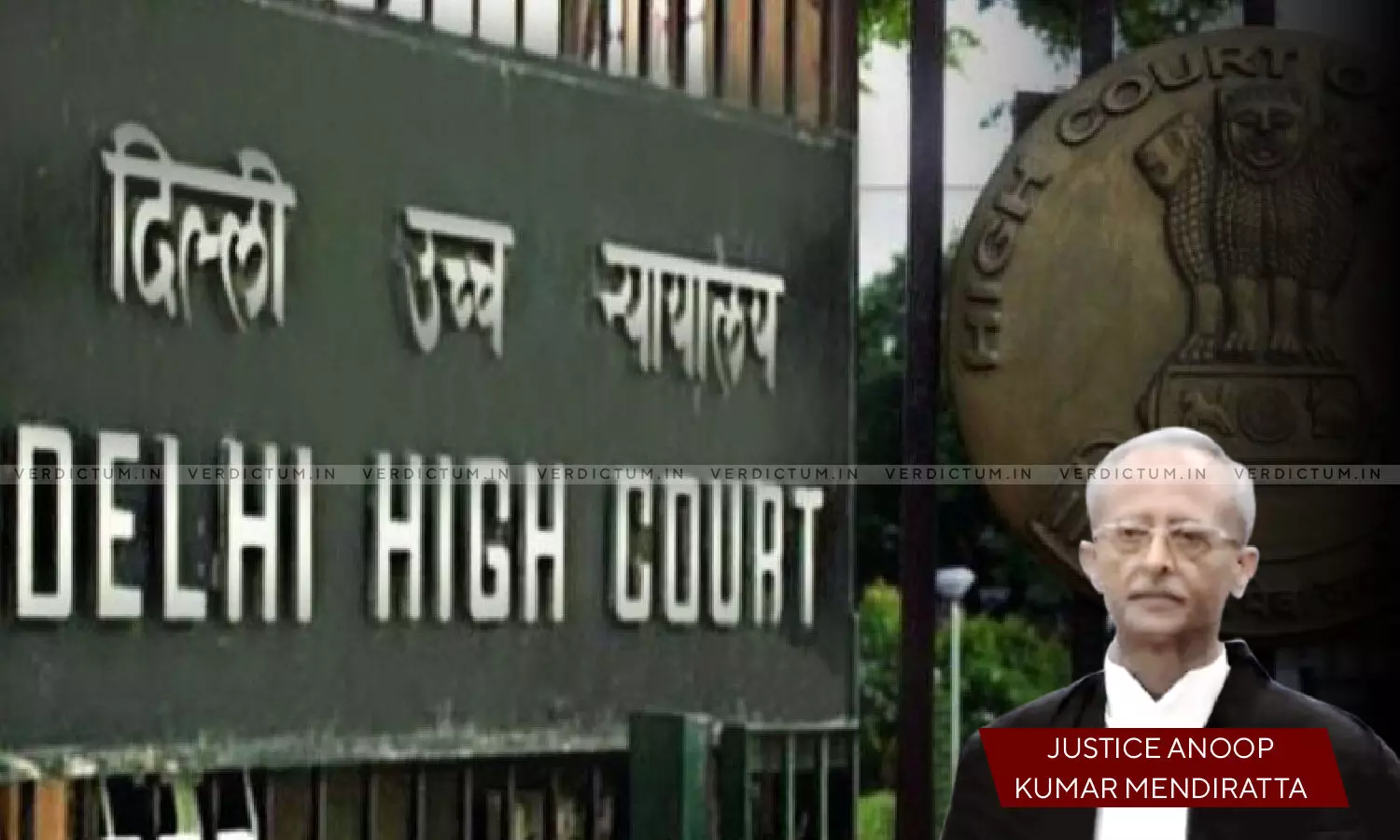
Non Filing Of Documents With Chargesheet Does Not Invalidate It: Delhi High Court
 |
|The Delhi High Court held while it's typical for all prosecution documents to accompany the charge-sheet, their absence for plausible reasons does not invalidate it.
An application for bail under Section 439 read with Section 482 of the Code of Criminal Procedure, 1973, had been filed on behalf of the petitioner including charges under Sections 454, 380, 420, 468, 471, and 120B of the Indian Penal Code (IPC).
A Bench of Justice Anoop Kumar Mendiratta held, “Ordinarily though, all the documents relied upon by the prosecution should accompany the charge-sheet, nonetheless, if for some plausible reasons, all the documents are not filed along with the charge-sheet, this itself, would not invalidate or vitiate the charge-sheet.”
Advocate Varun Bhati appeared for the Petitioner and Advocates Ajay Vikram Singh and Hemant Gulati appeared for the Respondents.
The complainant alleged trespassing at a property owned by her while she and her family were abroad. The property in question was claimed by both the complainant and the petitioner, with conflicting ownership histories presented by both parties.
The petitioner claimed ownership based on a notarized Power of Attorney, while the complainant claimed ownership based on a registered General Power of Attorney (GPA). There were disputes regarding the authenticity of documents and the identity of the petitioner.
The petitioner argued that the prosecution's case was flawed due to gaps and inconsistencies, including the failure to collect signatures for comparison, lack of proper identification proceedings, and incomplete charge-sheet presentation.
However, the Court found no need for Test Identification Parade (TIP) proceedings, upheld the authenticity of the complainant's registered GPA, and dismissed the petitioner's claim for default bail under Section 167(2) of the Cr.P.C. The Court added, “Merely because the signatures of Narinder Kumar Minocha could not be collected during investigation, does not cast any doubt on the authenticity of registered GPA executed in favour of the complainant, who has been in possession of the property since 1989.”
The Court highlighted that the charge-sheet was filed within the stipulated period, fulfilling statutory requirements. It also clarified that the absence of certain documents alongside the charge-sheet does not invalidate it, as long as the court is satisfied with the evidence presented. The Court said, “The report is an intimation to the Magistrate that upon investigation into a cognizable offence, the Investigating Officer has been able to procure sufficient evidence for the Court to inquire into the offence and necessary information is being sent to the Court. The report is complete, if it is accompanied with all the documents and statement of witnesses as required by Section 175(5) of Cr.P.C. as held in K. Veeraswami v. Union of India and Others, (1991) 3 SCC 655.”
Ultimately, the Court dismissed the bail application, noting the filing of the charge-sheet and the taken cognizance, and deemed the cited authority by the petitioner's counsel as distinguishable. The Court added, “In the facts and circumstances of the present case, this Court is of the opinion that the charge-sheet having been filed against the petitioner within the prescribed limit and cognizance having been taken by the concerned Court, the petitioner cannot claim the statutory right of default bail under Section 167(2) of Cr.P.C. merely because some investigation under Section 173(8) of Cr.P.C. may be required.”
The application was accordingly dismissed, and pending applications were disposed of.
Cause Title: Oma Ram v. State of GNCTD, [2024:DHC:970]
Click here to read/download Judgment